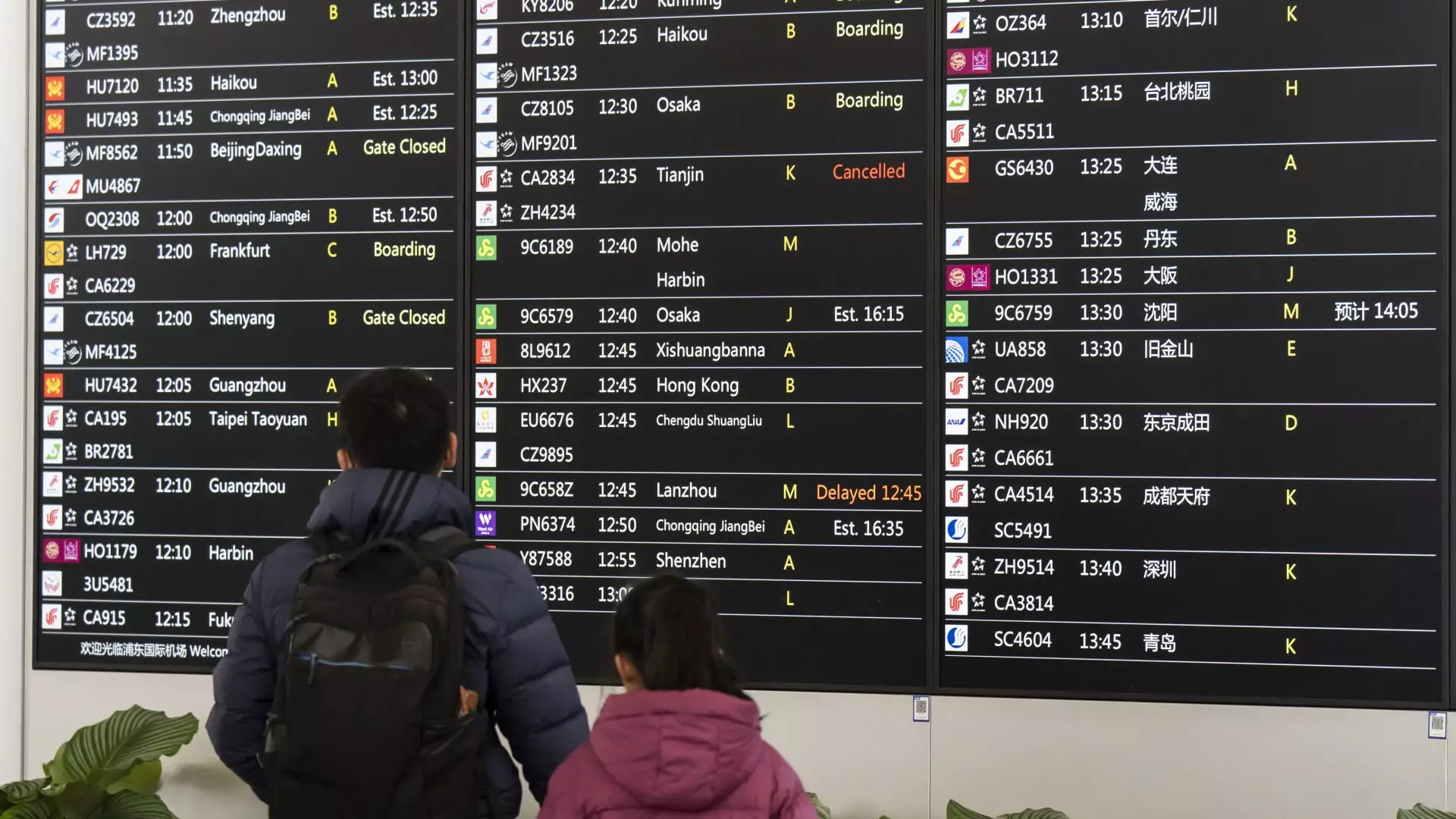The Lunar New Year, a pivotal holiday for travel in China, has seen a shift in trends due to rising safety concerns. Recent events, particularly the kidnapping of Chinese actor Wang Xing, have instigated caution among Chinese tourists, leading to significant cancellations of travel plans to Thailand. The ramifications of these cancellations extend beyond Thailand, impacting regional tourism dynamics across Southeast Asia. This article explores the reasons behind these cancellations, the response from the Thai government, and the broader implications for Chinese outbound travel.
Safety Concerns Drive Travel Cancellations
In the week leading up to the Lunar New Year, bookings for trips to Thailand saw a dramatic decline of 15.6%. According to the marketing agency China Trading Desk, this downturn reflects growing unease among Chinese travelers following Wang Xing’s abduction and subsequent rescue from a location tied to illegal activities near the Thai-Myanmar border. The incident underscores systemic vulnerabilities in the region that have deterred potential travelers from considering Thailand as a safe destination. Subramania Bhatt, CEO of VariFlight, noted that while Thailand bore the brunt of these cancellations, other Southeast Asian destinations like Vietnam and Singapore also experienced collateral damage, revealing an interconnectedness in regional travel plans.
The response from travelers is not limited to declining interest in Thailand. Interestingly, data indicates a modest increase in bookings to other destinations, such as Australia and South Korea, which saw rises of 4.8% and 3.9%, respectively. This shift reflects a newfound caution among Chinese tourists, who appear to recalibrate their travel aspirations in light of recent events. Yang Lei, an analyst at China Galaxy International, pointed out that locations perceived as safer or politically neutral are now favored, spotlighting Japan and South Korea as upcoming hotspots for outbound travelers. This inclination for safety and reassurance highlights the fundamental change in how Chinese tourists now prioritize security over mere convenience when planning their holidays.
Government Action and Reassurance
In response to the unfolding crisis, the Thai government has embarked on initiatives to regain the confidence of Chinese tourists. One arresting measure was the release of an AI-generated video featuring Thailand’s Prime Minister attempting to alleviate safety concerns, asserting that Thailand remains a secure travel choice. Concurrently, Chinese authorities have expressed their readiness to cooperate with Southeast Asian nations to combat transnational scams. This initiative reflects a broader strategy to ensure safety and drive tourist sentiment back to Thailand.
Despite these efforts, skepticism persists among potential travelers. The recent portrayal of a racially charged trafficking narrative through the popular Chinese film “No More Bets” has exacerbated fears associated with the region. The film’s plot, which revolves around Chinese workers being lured into a human trafficking scheme in Southeast Asia, has blended fiction with real-world crises, amplifying pre-existing concerns regarding safety in the region.
While the immediate effects of the kidnapping incident are undoubtedly alarming, it is significant to note that Southeast Asia may still see higher numbers of Chinese tourists this Lunar New Year compared to pre-pandemic levels. Despite the downturn in Thailand, bookings to Singapore and Malaysia have observed increases of 14.2% and 6.2%, respectively, compared to 2019. This dichotomy in travel patterns might suggest a broader resilience in regional tourism, highlighting how some destinations can recover quicker when perceived as safer.
Furthermore, Bhatt notes that the outlook for long-haul travel, particularly to Europe and the United States, remains comparatively muted. Heightened travel costs due to geopolitical factors, coupled with dwindling consumer confidence in a stabilizing economic environment, pose additional challenges for international travel from China. As a result, preferable destinations resonate with those maintaining “politically neutral” identities, allowing for a more welcoming atmosphere for tourists wary of potential disruptions.
The kidnapping of Wang Xing represents more than an alarming incident; it signifies a potential pivot in travel habits among Chinese tourists seeking safety above all. While it may be tempting to predict a swift return of outbound travel to Thailand as prior patterns resume, the reality is more complex. Factors such as safety perceptions, political considerations, and economic realities will significantly shape the future landscape of Chinese tourism. As we navigate this changing terrain, it becomes evident that destinations like Thailand must continuously evaluate and adapt their safety protocols to restore trust and attract the vital Chinese tourist demographic.


Leave a Reply